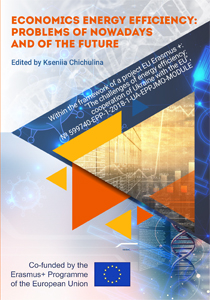


Keywords: knowledge-based management; SMEs; knowledge; intellectual capital; competitive advantage; sustainability; convergence; competition; entropic model
In Romania, small and medium-sized enterprises play an essential role in economic life; they have special features that make the adaptation to the knowledge-based economy easier. If the managers of some successful companies in Romania were asked about the value, structure, management, effects, etc. of the company’s intellectual capital, most of their answers would probably be limited to assessments of their patents, product trademarks and IT programs held. At the same time, in an intuitive manner, the answers would also refer to the level and form of training and the talent and experience gained by the employees. The present paper identifies the particularities of knowledge-based management and focuses on the importance of intellectual capital and the benefits it generates in general and in particular for the SMEs in the North-Eastern Region of Romania, also exploring the role of the entire process to provide a valuable human resource as a support for performance increase. The results of the present research, assisted by certain concepts from the specialized literature regarding the role and importance of knowledge, define the competitive advantages of knowledge-based management. Knowledge, as an intangible asset, has proven to be a strategic resource, and the creation of knowledge is a basic competence of present-day organizations. Knowledge is no longer seen as an objective, scientific entity, but as an integration of the subjective and the objective, able to reflect a part of the economic reality. The research highlights the wish to implement diligent recruitment strategies, which are devised in close connection with the reputation that large competitors have, to motivate the opportunities of working in small and medium enterprises that are dynamic and innovative, to clearly define in the recruitment process the requirements that valuable employees should meet from the organization’s point of view, to ensure communication with employees, to offer the guarantee of advantages if they choose to work in that particular enterprise to the detriment of large competitors, to have as objectives the devising of an employee-centred image (“employer brand”) with stress being laid on communication and visibility, including through the website of the organization, social media, promotion of the organization’s message, promotion of models created in the organization and of its performances, to promote the results of the so-called advantages which are too good to refuse (“additional employee benefits”). The small- and medium-sized enterprises in the North Eastern part of Romania that have understood the importance of intellectual capital use knowledge-based management as an instrument to adapt to the ever-changing environment, by way of the timely identification of opportunities and risk avoidance, a behaviour that overlaps with the strategic orientation of the company, understood as its ability to position itself in such a way as to generate and maintain its competitive advance in the long run.
More...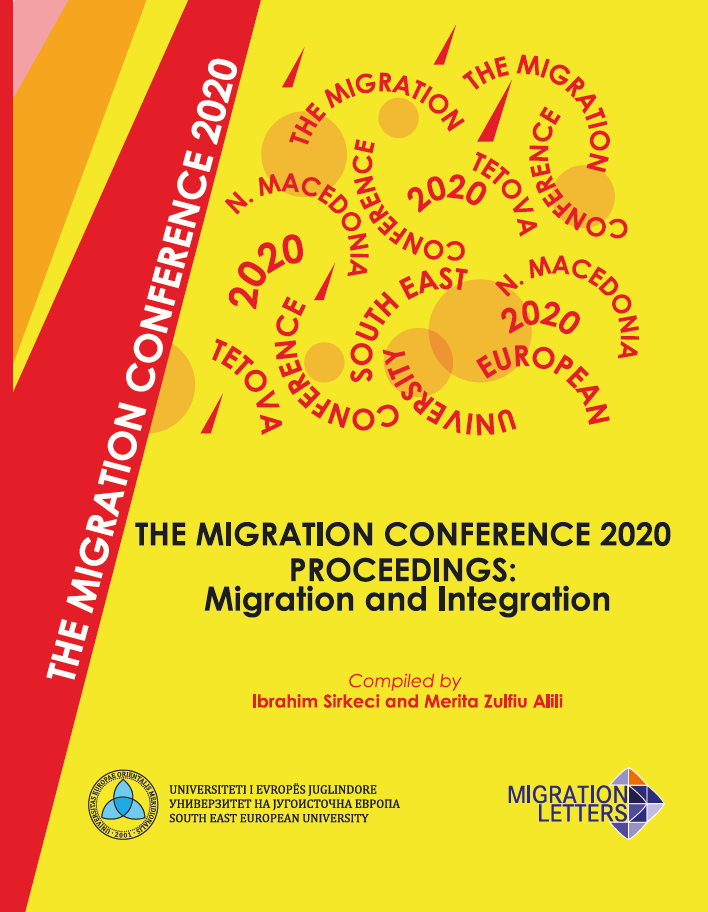
Keywords: Caring For Elderly Parents; Japan While Living Abroad; Transnationalism; Mobilities; Long-Term Strategies;
When the words ‘care’ and ‘transnational migration’ are used in one sentence, what typically comes to mind are migrants – usually women – who move to another country in order to care for children or elderly people there because the latter’s own family are in a more advantageous position and have other priorities. In view of the constantly increasing movement of foreign health, residential and domestic care workers to rapidly-aging upper- and middle-income countries, researchers have developed the concept of global care chains (Hochschild 2000, Parreñas 2005, Yeates 2009). Defined as “a series of personal links between people across the globe based on the paid or unpaid work of caring” (Hochschild 2000: 131), the chain extracts physical and emotional labor upwards to the Global North (or, the core), leaving the Global South (or, the periphery) as a reservoir of care workers (Yeates 2009, Raghuram, Bornat & Henry 2011). These chains “cascade downwards and incorporate labor that at each stage is remunerated to lesser extent” (Kofman & Raghuram 2012: 8). For instance, a woman in a poor country migrates from the big city to a wealthy country to work as a domestic maid; she, in turn, relies on another woman from the countryside to migrate to the big city to care for her children and/or elderly parents in her absence; she, in turn, relies on (female) relatives to care for her own children and/or elderly parents back in the countryside. As Ormond & Toyota (2018) point out, care deficits are passed downward in distinctly gendered, racialized and classed manners.
More...
Keywords: internet-mediated communication;identity;queer studies;social media
In the following article several key points are highlighted from a doctoral thesis entitled Gay Men, Social Media and Self-presentation: Managing Identities in Gaydar, Facebook and Beyond written by Elijah M. Cassidy at the University of Technology in Queensland, Australia. The dissertation focuses on the ways in which homosexual men, who use both niche and mainstream Social Network Services (SNS), manage their identities therein. The research uncovers the entanglements of various practices employed in both spaces and presents complex privacy concerns. It also refers to manifold peculiarities of Internet-mediated communication and the ambivalent impact of mainstream and niche SNSs on the sense of collectivity of the researched group. Having presented the main ideas of Cassidy’s research I determine the connection between his conclusions and those drawn from two Polish studies which recently treaded the relatively uncharted waters of this research area.
More...
Keywords: digital poetics;convergence;interactive figures;hypertext;link
The aim of the study is to present changes in the structure of text (its structure and ways of creation, figures in particular) in digital discourse. The identity of digital communication is supported by existing signs, texts, and discourses; and how it develops in the process of their adaptation and reinterpretation. The Internet seems to be a really good space in which different discourses become alike. This process results in the creation of new poetics of text and discourse. Digital media modifies rhetorical figures (especially the ontology and functions of those figures), it cancel figures existing in traditional texts (for example, inversion is invalidated because no determined way of reading the text exists), and it creates new ones. In digital discourse words and icons have a multifunctional nature (meaning-making, linking, acting, marking, and signalling the sender’s emotions). Traditional textual forms, which differ semiotically and medially, are combined and transformed, so that the boundaries between forms of expression are blurred.
More...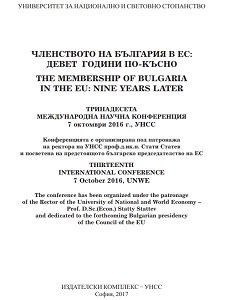
Keywords: Small and Medium-Sized Enterprises; National Postal Operators; Supply Chains; E-Commerce; Internationalization
The aim of the report is to show how national postal operators can encourage more active participation of small and medium-sized enterprises (SMEs) in the system of international business by improving existing services and developing new ones. Two important trends in the international business environment create good preconditions for cooperation between the two groups of companies. On the one hand, the fragmentation of production stages and their establishment in different geographical areas means design and management of supply chains, and is accompanied by an increase in the importance of delivery services and new opportunities for SMEs to become suppliers of big companies. On the other hand, the use of information and communication technology in various business areas, including e-commerce, facilitates the participation of SMEs in the international market. At the same time there are various barriers with regards to the internationalization of their activities. The report brings forward a model for cooperation between SMEs and national postal operators, which takes into account the above-mentioned trends.
More...
Keywords: geopolitical changes; hybrid war; frozen conflicts; economic opportunities; arms race;
The Black Sea is a security complex that has come to the fore today as a result of thegeopolitical changes in recent years. The changes have the effect of modifying the borders.Moreover, new “frozen conflicts” have emerged. The area has gained consistency in theincreased attention paid by Turkey and the Russian Federation but also by the US and NATObeing positioned on the border of Europe with Asia and with the new great Middle East. It isthe source of risks with still imprecise effects defined, having a very high destabilizing potentialwith implications that can even be global.In the past years and in the context of the changes in the policy of all the actors in the area,in the paradigm of NATO Defence, a new type of conflict, the hybrid conflict has emerged,and/or specific measures to counteract its effects have been generated. Also, a new arms racebegan with the involvement of all actors with influence and interests in the region includingRomania. We can say that Romania is in the middle of a “perfect storm”.
More...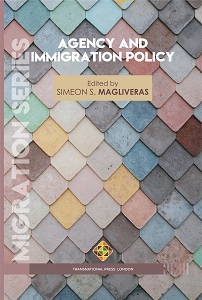
Keywords: diaspora policies; Sri Lanka; diaspora; dual citizenship policy; central diaspora outreach policy; civil war; Sri Lankan; Sri Lankan citizens; government; emigrants; policy;
Many sending countries around the world are relaxing their diaspora policies day by day. Sri Lanka, a sending country with over one million diaspora members, continues the dual citizenship policy as their central diaspora outreach policy. During the last decade, specifically after the end of the civil war, Sri Lankan dual citizenship policy became a heated topic at the domestic level. I argue that while Sri Lankan citizens who are living in the country and the government became the main entities in dual citizenship debates, Sri Lankan emigrants’ reasons and narratives are often ignored. Since the decisions on dual citizenship are made in absence of accurate knowledge on emigrants’ interests and needs, I argue that the existing Sri Lankan dual citizenship policy is ineffective; hence the need to revisit and reform the policy. The data of this study are gathered through 51 semi-structured interviews with Sri Lankan diaspora members in Australia and New Zealand. The findings suggest a disparity between the governments’ and emigrants’ expectations and interest on dual citizenship; Sri Lankan diaspora members’ interests are more non-instrumental (e.g. sense of belonging) while the government’s interests are more instrumental (e.g. investing).
More...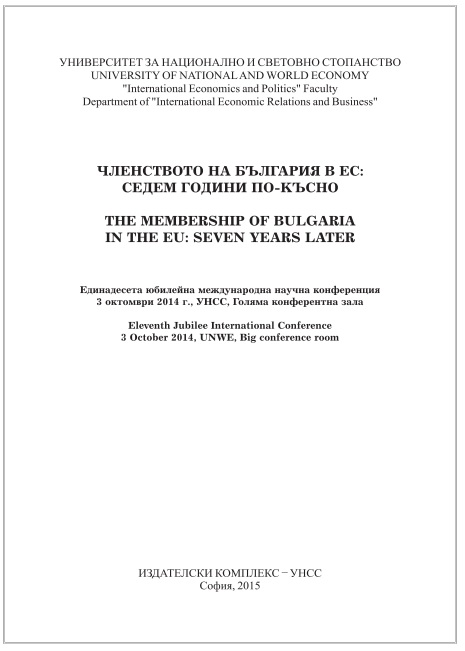
Keywords: Corporate Governance; Banking Sector; Financial Institutions; Legal Framework; Financial Crisis
The aim of the current report is to observe and explore the reasons for the banking crisis from mid-2007 from corporate governance perspective and how in its response the governing principles have evolved and improved on a global and European level, what lessons have been learnt and what course of action has been taken in the banking sector in the subsequent years of recovery. The study focuses on the current Bulgarian legal and "soft" framework (principles and by-laws) for corporate governance in the financial institutions and search to compare and contrast at what extend the notorious corporate governance documents such as the BIS Principles for enhancing corporate governance, the OECD Principles of Corporate Governance and the European directives are embedded in the national codes and acts and adopted by the banks. An emphasis is also put on the recent shock in the Bulgarian banking problems from the beginning of the second half of 2014.
More...
Internet communication is an indispensable part of the contemporary international business practice. Internet provides a variety of communication tools such as email, file transfer, mailing lists, bulletin boards, chat systems, text or audio and video conferences, group calendars, workflow systems, collaborative writing systems, decision support systems, etc. The technology contains an important cultural component which is even more salient in cross-cultural communication, that is when the interlocutors are representatives of different national cultures. When selecting Internet communication tools, international business practitioners should consider the barriers in cross-cultural communication. Cross-cultural differences in Internet communication can be satisfactorily predicted on the basis of the national culture dimensions, as elaborated in cross-cultural literature. The paper sorts out contemporary theories about Internet communication and applies them in the analysis of the national culture impact on the structure and dynamics of the communication, taking place in the virtual space.
More...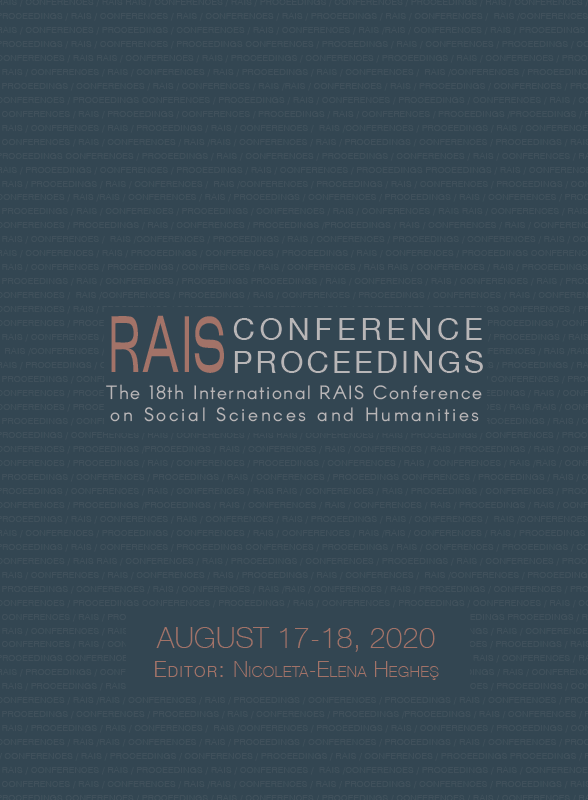
Keywords: The Green New Deal (GND); carbon tax; emissions trading;
The Green New Deal (GND) serves as market solution to implement global environmental governance as “the sum of the many ways individuals and institutions, public and private, manage their common affairs.” This paper discusses the historical foundations, underlying economic mechanisms of the GND and contemporary implementation strategies of the GND. GND spending should target social and green causes fostering concepts such as eco-commerce, environmental enterprise, environmental finance, fiscal environmentalism, green accounting, economy, jobs and trading as well as sustainable energy. The economic policies proposed comprise of fiscal and monetary means, innovation efforts and behavioral changes. Concrete recommendations are given on carbon tax, emissions trading, green bonds, absorbing CO2 and forestation, insurance policies, intergenerational conscientiousness, engaging portfolio managers, ecotax, environmental pricing reform, environmental tariffs, net metering, Pigovian tax and sustainable tourism. All these efforts are to support global environmental governance. The paper closes with a prospective outlook of changes implied to the GND due to the novel Coronavirus (COVID-19) crisis.
More...
Keywords: Learning by using; learning by doing; problem solving;
Using data from participant-observation and interviews addressing users of the largest CNC laser machine producer in the world, located in Europe, I investigate a cause that leads to cumulative learning with using. This cause differs from uncertainty in the prediction of performance characteristics or its need for improvement with growing certainty in the field. Drawing from theory and research on learning and problem solving, I introduce the concept of learning by using as the acquisition of a new language, wherein language is defined as the entire concept from latent logic to manifestations of this understanding, such as spoken words, actions or products. My empirical field evidence shows that the manufacturer and users speak fundamentally different languages, lacking adjustment to the logic of the other side. This refers especially to the cumulative utilization problems that exist beyond solving a product’s teething problems. Data suggest that utilization experience is dominated by solution search in a non-linear process, eventually leading to recognition of manifestations of the different languages used and problem-solving, but lacks an adjustment to the different logical concepts. This leads to dissatisfaction in utilization and could be solved by trying to understand the root cause of the diverging manifestation so as to grasp the intention of the other side and be able to adapt their own logic to them. I discuss implications for theory and practice and provide suggestions for future research.
More...
Keywords: A Missing Element; Migration Theories; migration; Scientific Study; Population;
In the 1990s, at the behest of Massimo Livi-Bacci, then President of the International Union for the Scientific Study of Population, I agreed to chair an interdisciplinary, international committee of migration scholars for the IUSSP. The committee’s charge was to develop a unified theoretical framework for the study of international migration by identifying the key propositions derived from prevailing migration theories and then to assess them against empirical evidence from international migration systems around the world. The ultimate goal was to encourage researchers from different nations and disciplines to speak a common theoretical language, thereby enabling them to test hypotheses of mutual interest using comparable data and methods. The committee consisted of Joaquin Arango, a sociologist from Spain who was familiar with migration in Europe; Graeme Hugo, a geographer from Australia with knowledge of Asia and the Pacific; Ali Kouaouci, a social demographer from Algeria who covered Africa and the Middle East; Adela Pellegrino, a historical demographer from Uruguay with expertise in Latin America; and J. Edward Taylor an economist from the United States who, like me, did field research in Mexico and knew the North American migration system well, but also had published widely on issues of migration and development around the world.
More...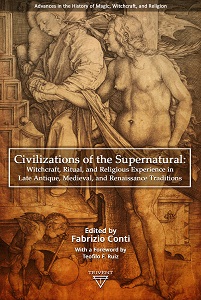
Keywords: witch; drama; moral philosophy; religious belief; early modern England
In this chapter, I argue that the Weird Sisters in Macbeth influence him to pursue rational deliberation, a key facet of humanist moral philosophy, wherein people make decisions that serve an individual good rather than a universal morality. I conduct a literary analysis of the play to demonstrate how Shakespeare parallels the witches and Macbeth by highlighting their linguistic similarities and shared propensity for rhetorical, and by extension, psychological manipulation through rationalization. In so doing, Shakespeare reveals that the potential for the abuse of reason towards individual gain is an innate part of a flawed human nature which people, particularly those who make up larger religious and political institutions, seek to deny by displacing that internal threat onto external forces in an attempt to ignore their own moral fallibilities. I end the chapter with a brief look at Thomas Middleton’s The Witch and Ben Jonson’s Masque of Queens to demonstrate how other early modern English playwrights complicate the relationship between witch and human characters to demonstrate how closely related the two are.
More...
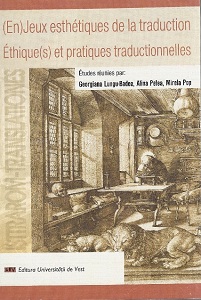
Keywords: translation ethics;translation into Romanian;language mediation;translation publishers;translation reader;translation market
Today it would seem appropriate to talk about ethics in the plural, taking into account all the actors involved in the process – translator, publisher, author and audience. In the same spirit, the profession needs to be looked upon from the perspective of the market. This study proposes an outline of the Romanian ethics in translation giving two recent yet opposite examples: a philosophical text and a crime novel. In terms of method, the author focuses on translatology accompanied by sociological remarks on translation in order to depict the state of play between the various ethics involved, from the decision to publish a translation down to the sale figures.
More...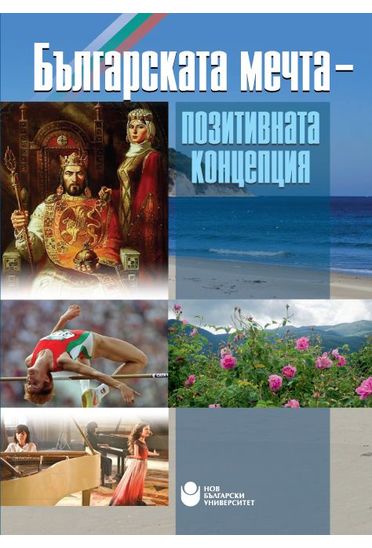
Keywords: improvement of working conditions; job quality; human capital; wellbeing at work
In the dynamically changing modern world, work and employment call for a new approach on the behalf of the employers and society, as well as for rethinking of the meaning we put into the concept of job quality and job wellbeing. Competition for highly qualifi ed professionals on an European and on a global scale transforms working conditions into one of the key aspects that make an position attractive. It is also one of the key factors for developing and retaining talented professionals. The paper contains an analysis of data and guidelines for the development of the concept of working conditions in the Republic of Bulgaria as a model for improving workplaces and making them desired by Bulgarian citizens, by the Bulgarians emigrants abroad and by the foreigners seeking employment in the Bulgarian economy.
More...
Keywords: virtual team; organizational infrastructure; forms of virtuality; new paradigm; group; team; self– managing working team; human capital; managing change
Fundamental factors related to the evolutionary development and functioning of virtual teams have been researched. The context, the prerequisites, the essential characteristics, the advantages and disadvantages of the virtual teams are analyzed in detail. Based on theoretical monitoring, different forms of virtuality, types of virtual teams and typology are defi ned. The reasons for the implementation of virtual teams in organizational practice are explored. Two fundamental factors are identifi ed: globalization and the development of new ICT. The result is the integration of virtual teams into the organizational infrastructure as a tool for managing change and achieving new levels of effi ciency and competitiveness in highly uncertain environments. This requires the development of competences (knowledge and skills) in the fi eld of social relations and communication, confi dence building, new behavior and adapted management leadership to coordinate technologies and processes in a multicultural business environment.
More...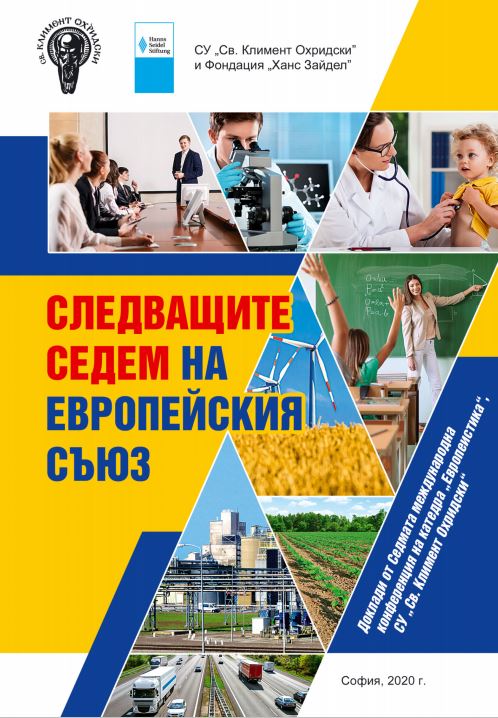
Keywords: European Disintegration; EU Disintegration Factors; EU Disintegration Symptoms
The objective of the research is to summarise and present the main visions, notions and attempts for construction of theoretical frames of the contemporary disintegration processes in the European Union which are evident in the pre-Brexit and Brexit periods. The research methods used in the study involve elements of retrospective analysis, induction and deduction, analysis and synthesis, comparative and content analysis, table presentation and generalization of the main ideas of key research works on European disintegration. This is a conceptual study and a posteriori research approach has been followed for its development. The result of the research is an overview of the recent literature sources and major studies on the topic of EU disintegration in a comparative plan. The main conclusion of the research is that there are many different reasons for dissatisfaction from the European Union among its member states. Unquestionably it’s difficult to always find the best balance and the right crossing point between all countries economic, political, social and environmental interests. Many authors find the growing dissatisfaction from the EU as the ground for future EU disintegration.
More...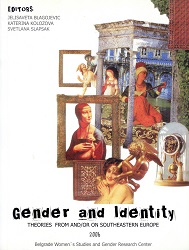
THE TEXT REVISITS THE BALKAN INVENTION BY THE WEST AND PROVIDES A SCHEME OF REGIONAL REACTIONS. THE PARADOX OF MASCULINE IMAGE OF THE BALKANS REQUIRES RE-EXAMINING OF THE IMAGERY OF INVISIBILITY, MONSTROSITY, HYBRIDITY, INBETWEENNESS, UNDER PART AND VISCERA OF THE EUROPEAN CORPUS. THE STIGMA OF THE DEGENERATE NEGLECTED MALE INSCRIBES THE BALKANS INTO THE CONDITION OF BASTARDISED FOREFATHERS. FOREFOTHERS. FOUR MAIN BALKAN ARTISTIC AND DISCURSIVE RESPONSES ARE EXAMINED: OF THE DECENT OTHER, OF THE EUROPEAN AFFILIATE, OF THE BALKANIST CRITIQUE, AND PARTICULARLY OF FESTIVE INTERAGENCY.
More...